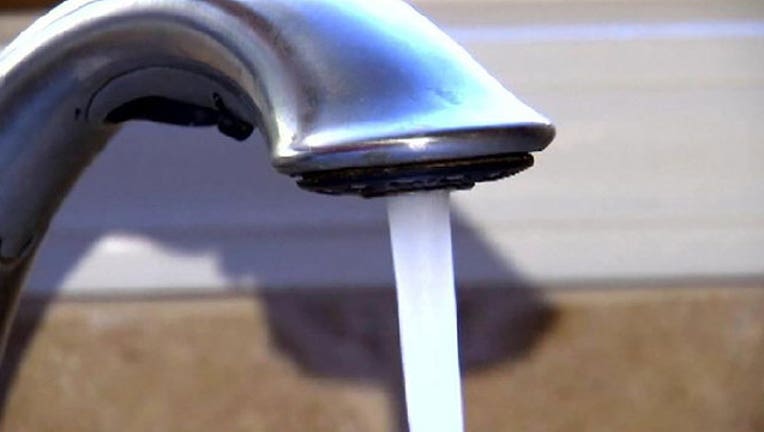Congresswoman: Illinois city should replace lead water lines

IOWA CITY, Iowa (AP) - An Illinois congresswoman on Wednesday called on officials in one city to seek federal aid to replace lead service lines that have tainted its drinking water and contributed to high rates of childhood lead poisoning.
U.S. Rep. Cheri Bustos, a Democrat, said Wednesday that she was "deeply disturbed" by lead levels detected in Galesburg's water sampling last fall that were above the federal action-level. She said she was even more alarmed that 5 percent of Knox County children tested in 2014 had lead in their blood above the Illinois standard for public health intervention, a rate six times higher than the state average.
"If this happened to one of my kids, I can tell you I would ask for immediate answers and immediate action. These families and these children deserve no less," Bustos said in a congressional floor speech. "To all responsible here, it is time, it is past time. No more excuses, no more delays. We need a long-term solution to a long-term problem."
Bustos was responding to an investigation published last weekend by The Associated Press, which found that Galesburg had one of the nation's most enduring problems of lead in the drinking water. US. Environmental Protection Agency data analyzed by the AP show the city's water exceeded the federal lead-action level in 22 out of 30 sampling periods since 1992.
Bustos said she was encouraging the city to seek a low-interest loan through a federal drinking water infrastructure program to replace underground lead service lines that deliver water from the city's mains to 4,700 homes. City officials have said that project would likely cost between $10 million and $15 million — perhaps $2,500 per home — and that they do not have a funding source. A complicating factor is that homeowners, not the city, own those lines.
The city, which is about 200 miles southwest of Chicago and not far from the Iowa border, launched an online search tool allowing residents to see whether their homes have lead service lines after the AP investigation.
City Manager Todd Thompson said Wednesday the city is considering several options to expedite replacement of the lead pipes. One would be to replace all of them immediately, but that likely will not be his recommendation given the cost.
Instead, he said he will propose ways to help low-income residents pay to replace lines. At a minimum, he said the city probably will start replacing lines at homes where children have elevated lead levels. Lead poisoning can affect a child's development and have lifelong consequences.
Bustos said she was alarmed that many local officials were "so quick to point to lead paint and lead dust" from the city's old homes as the cause of poisoning rather than studying the role of drinking water. Scientists say drinking water can contribute 20 percent of a person's lead exposure, and more than half for bottle-fed infants.
The AP analysis of testing data for 75,000 water systems over the past 25 years comes amid the ongoing crisis in Flint, Michigan, where a state-ordered switch from Detroit drinking water to the local river exposed residents to high lead levels, creating concerns about the long-term health effects on children.
The AP found nearly 1,400 water systems nationwide had lead levels above the federal safety limit at some point during the past three years.
Galesburg's city manager said officials want to collaborate with the county health department when its inspectors assess homes of children with lead poisoning to try to pinpoint the cause of their exposure. That program has focused on lead paint and toys, but the city would like to be able to test the water in such cases and consider replacing the lines.
The county's public health administrator, Michele Gabriel, said sharing the results of lead blood tests with city officials would require authorization from patients. She said she will discuss the issue this week with the board of health.

